
- Diet & Nutrition
- Cat Behavior
- Kitten Care
- Preventive Care
- Common Conditions
- View Full Guide
Tips for a Clean Home and Healthy Cat

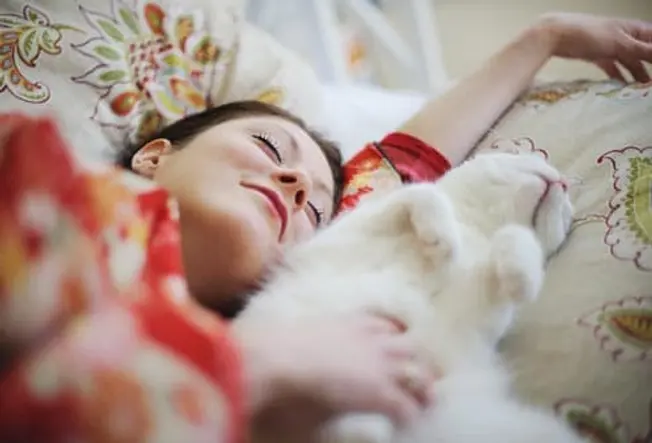
Cleaning Up After Kitty
Your fabulous feline may think cat hair is the ultimate accessory. If you don’t agree, start by getting a good vacuum cleaner. Look for one with strong suction that has a pet hair attachment. Don’t forget to vacuum chairs and curtains. Wear wet rubber gloves and run your hands over your cat’s favorite spots. Brush tape, sticky-side out, over your clothes. Buy pet bedding that’s easy to clean. And if your kitty goes outside, place a washable cushion where they go in and out to catch muddy paws.

Keeping Your Cat Clean
Cats do a good job of cleaning themselves, but yours may need a bath if they get really dirty -- or if someone in your house has allergies. Start by trimming your cat’s nails to prevent scratches. You can do it yourself with cat nail clippers -- ask your vet to show you how. Brush your cat to remove loose hair or mats. Use only shampoo for cats or kittens and keep water out of their face and ears. Dry them with a towel or blow dryer on cool. Give them a treat at the end, so they’ll start to associate a bath with something pleasant.

No More Fleas and Ticks
No matter what type of flea prevention you use -- spot-on-the-back, flea collar, pills, or shampoo -- follow the directions carefully. Don’t use products for adult cats on kittens, and never use dog products on cats. Whether prescription or over-the-counter, don't touch treated areas until they're dry.
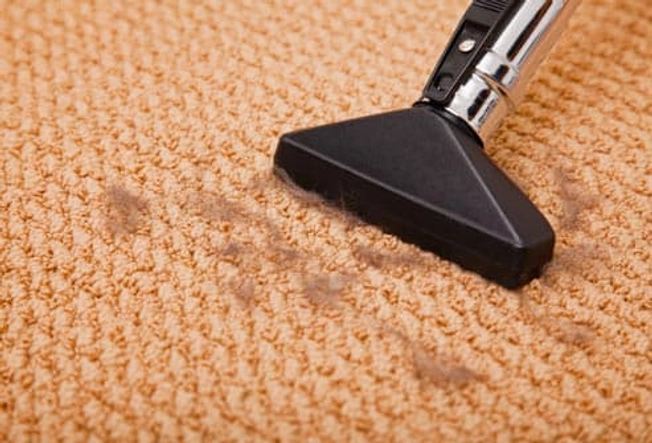
Get Fleas out of the House
If your cat brings in fleas, it’s time for serious cleaning. Vacuum every day, including upholstered furniture, cracks in the floors, and along baseboards. Then replace the vacuum bag or wash the canister in warm, soapy water. Wash or replace any bedding where they sleep (including yours), and consider steam cleaning your carpets. Use a flea comb on your cat, and then treat them with flea meds. Flea sprays are better than flea "bombs" to treat your home. Always check to make sure any home treatments for fleas you use are safe for cats. And be sure to follow the instructions carefully.

Loving the Litter Box
Cats are creatures of habit, even when it comes to their litter. Some like the clumping clay kind without a scent. Try a little baking soda on the bottom to help with odors. Scoop litter at least once a day. Dump it all out and wash the whole box once or twice a week for clay litter or every 2 to 3 weeks for clumping. And while you may like liners and covers, your cat may disagree. Liners can interfere with scratching. And, to cats, covered boxes can stink like port-o-potties.
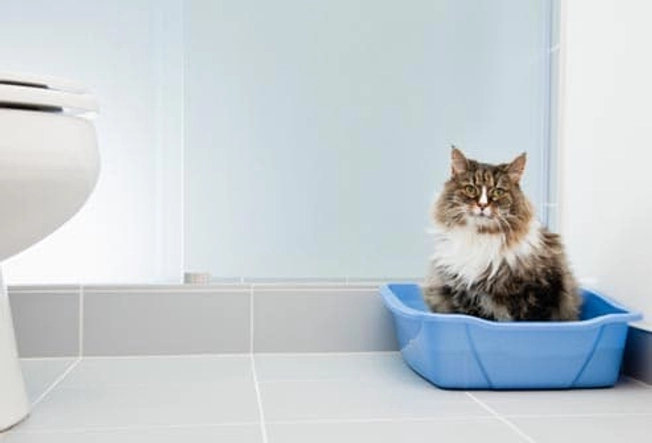
Litter Box: Location, Location, Location
Like people, cats want a little privacy when they’re doing their business. But they also like to keep an eye on their surroundings. Tuck boxes out of sight but make them easy to reach, preferably at least one per level of your home. Keep them away from hot or loud appliances and noisy kids. Cats have sensitive noses, so keep smelly litter far from their food.
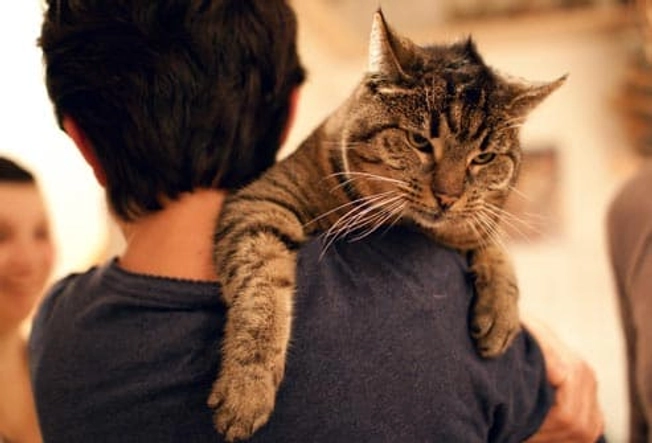
When Accidents Happen
Cats would rather use a litter box, so accidents are a sign something’s wrong. If your kitty’s upset about a change in your home, give them a little extra TLC. Don’t yell or punish them -- that will make things worse. Accidents also can be a sign of health problems like diabetes, kidney disease, urinary tract infections, or arthritis. Get them checked quickly before missing the box becomes a habit. Use an enzymatic cleaner to treat spots.

Why Do Cats Spray?
Spraying urine is how both male and female cats mark their territory. The urge is strongest if they haven't been fixed, so try to neuter or spay cats by age 5 months before the behavior starts. Stress can make your cat spray. So can scented cleaners, if they wants to cover the strange smell. Feed or play with them in areas they are prone to mark. Keep likely targets -- new things, guests' belongings, and items that are already sprayed -- out of reach.
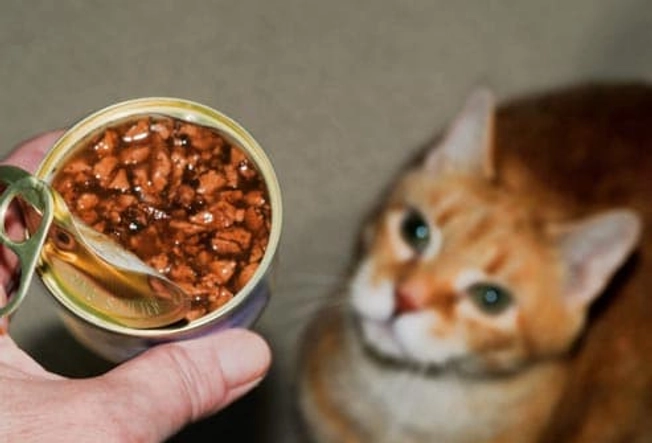
Keep Food Safe
Both people and animals can get food poisoning from spoiled pet food, so treat your cat’s food like you do your own. Don’t buy damaged packages. Store food in sealed containers. Refrigerate leftover wet food right away. Replace dry food every day. Wash your hands well after you feed your cat. Keep their food and dishes away from areas where you prepare and serve your meals.

When You're Allergic to Your Cat
As long as your allergy’s not serious, you don’t need to give up your kitty. Keep them out of your bedroom, and buy bedding made for people with allergies. Use air cleaners with high-tech filters. Special anti-allergy room sprays can clear the air, too. Avoid dust-catching rugs, curtains, and cloth furniture. Clean your house (and cat) often. Better yet, get someone else to do it. And talk to a doctor -- preferably a cat lover -- about medicine that will help.
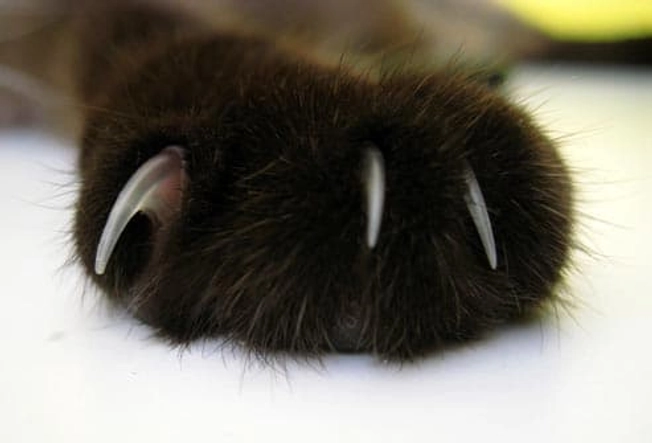
Should You Declaw?
Declawing is much more serious than just removing a cat's nails. It usually involves taking out the last bone of each toe and can mean a life of problems for them. There are easier options. Cats need to scratch, so give yours scratching posts and toys. Teach them what’s off limits by using a squirt gun or noisemaker, not by yelling or swatting. Discuss declawing with your vet. They can give you all the cons as well as a complete list of alternatives.

Can Cats Make You Sick?
It’s rare for healthy people to get sick from touching cats. Wash scratches and bites right away with water and mild soap. Always see a doctor for any bite, or if a scratch gets infected (red or swollen). Always wash your hands with soap after you clean litter boxes. If you’re using litter that can’t be flushed, throw away scoopings in sealed plastic bags.
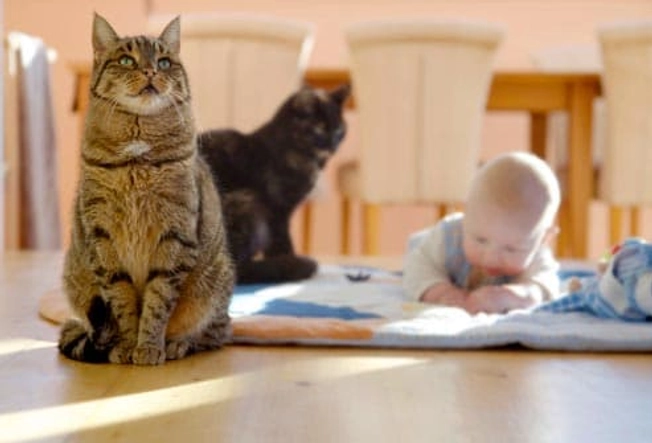
Cats and Babies
Give your cat time to get ready for a new baby. Let them explore the nursery and get used to new smells like baby lotion. If you have to move their litter box, do it gradually. Let them get comfortable, but don’t let them nap on the nursery furniture. Cats cuddling up next to newborns can make it hard for babies to breathe. Close the door or tent the crib when your baby’s asleep to keep kitty out.